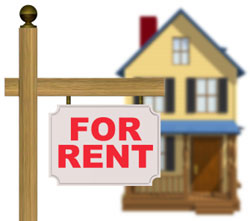
Once the real-estate market starts to rebound, investing in property will become a more appealing idea — either as a career or a great side job. Like any other endeavor, though, there’s a right way and a wrong way to go about it.
Bankrate spoke with established, full-time real-estate investors and with professionals, such as bankers, to identify the 10 types of traps into which real-estate investors most often fall.
1. Planning as you go
Andy Heller, an Atlanta investor and a co-author of “Buy Even Lower: The Regular People’s Guide to Real Estate Riches,” says lack of a plan is the biggest mistake he sees new investors make. They buy a house because they think they got a good deal and then try to figure out what to do with it. That’s working backward, Heller says.
“First, you find the plan,” he says. “Then you find the house to fit the plan. Pick your investment model, and then go find property to match that. Don’t find the strategy after you find the home.”
“People fall in love with a property,” says Crowe, the managing director of Springboard Academy, the nation’s only real-estate academy for investors. “I say, ‘Who cares about the property?’ I fall in love with a motivated seller.”
2. Thinking you’ll get rich quick
That kind of wrongheaded thinking is fueled by “these self-appointed gurus who have infomercials and make it sound so easy to get rich in real estate,” says Eric Tyson, a co-author of “Real Estate Investing for Dummies.”
Real estate isn’t easy. It’s a good long-term investment, but so is putting your money in a mutual fund, which is a lot easier. “These gurus don’t talk about all that hard work. You have to be smart, you have to be willing to work, and you have to understand your risk tolerance.”
3. Playing Lone Ranger
A key to success is building the right team of professionals. At the very least, you need good relationships with at least one real-estate agent, an appraiser, a home inspector, a closing attorney and a lender, both for your own deals and to assist with financing for prospective buyers.
In the remodeling and maintenance segment of the business, the team includes a plumber, an electrician, a roofer, a painter, a heating and air-conditioning contractor, a flooring installer, a lawn maintenance service, a cleaning service and an all-around handyman.
You can’t build a business as an investor if you’re spending all your time fixing leaky faucets and putting up ceiling fans.
4. Paying too much
Heller says the biggest reason investors don’t make money is simple: They pay too much for properties.
“The profit is locked in immediately once the investor buys the property,” he says. “Due to mistakes in the analysis, the investor pays too much and then is surprised later when he doesn’t make any money.”
5. Skipping homework
You wouldn’t think you’re qualified to perform open-heart surgery without years of education and training. Yet many wanna-be real-estate investors don’t think twice about taking their financial lives in their hands without even cracking a book.
Educate yourself before you put your family’s financial security on the line. Read articles, check out books from a library, join investor clubs and attend workshops and seminars.
6. Ducking due diligence
Investors often have to move quickly on their deals. That doesn’t mean they sign a contract and write a check without plenty of research, though.
That’s where a lot of newbies trip up, says Houston real-estate agent Laolu Davies-Yemitan. They don’t do their due diligence about the deal, the costs or the market conditions, and they wind up draining their personal savings because the house needs extensive repairs or they can’t sell it.
“Sometimes, new investors are buying property just based on the idea that the property is going to appreciate,” he says. “Usually, they don’t have any information to substantiate that.”
7. Misjudging cash flow
If your strategy is to buy, hold and rent out properties, you need sufficient cash flow to cover maintenance.
“People think they can get a property manager,” Tyson says. But many have never interviewed a property manager and have little idea about how they work. Most managers, for example, are reluctant to take on one single-family home or a duplex, he says, preferring larger complexes. And fees of 7% to 10% of the monthly rent are common.
“It’s a huge expense,” Tyson says. “I can put my money in a mutual fund and it costs a half-percent a year.”
Davies-Yemitan agrees. It’s not uncommon for a property to sit on the Houston market for 90 to 120 days before it’s leased, he says. Meanwhile the owner has to pay the mortgage, the taxes, the insurance, the cost of advertising and any homeowner or condo association dues, he says. If the owner hasn’t budgeted for that, an asset can quickly become a liability.
8. Lowering the volume
If you’re working on one deal at a time, Crowe says, you’re doing transactions, not running a business.
You need a steady pipeline of prospective deals; sufficient volume will weed out the marginal deals and let the good ones rise to the top.
9. Painting yourself into a corner
Many people buy a property and get stuck with it because they have only one exit strategy. They’re going to sell it or rent it out. What if it doesn’t sell? What if the rental market stalls?
Always have two, if not three, ways to get out of any deal. For example, if plan A is to rehab the house, put it on the market and resell it, then plan B could be to offer a lease-purchase to a buyer. Plan C might be to hold the house and rent it out. And as a plan D, there is the wholesale option, which would involve selling to another investor at a below-market price. Hopefully, you’ll still make a profit, but at the very least, you’ll cut the losses you’re taking every month in carrying costs.
10. Miscalculating estimates
Crowe tells his new rehabbers that after they’ve done their homework, they should double the amount of time and money they think it will take. If they can still make money then and they might be able to rent it out, it’s a good deal.
Source: Pat Curry for Bankrate.com
Share the wealth: 






 Stay Tuned In!
Stay Tuned In!





